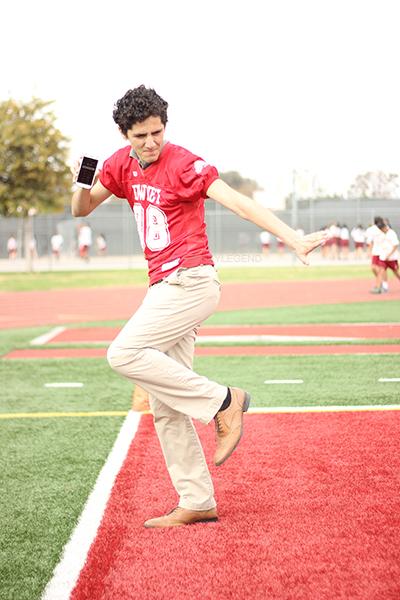
Junior Aron Ramirez began a fantasy football league with friends and Music Director, Mr. Fell, last year and has kept it going ever since.
Ramirez was interested in establishing a fantasy football league so he asked Mr. Fell for permission to make an announcement after a band rehearsal welcoming anyone who was interested in joining. By doing so, Fell, a current USC football fanatic, signed up as well.
“We all love football, so this is just another way to bond and break the awkward teacher-student barrier,” Ramirez said.
Once the season long competition ends, a winner is crowned as league champion and in this case, rewarded with Starbucks by the losing team.
Because the players’ performances are based off of the performances in real life, the activity still allows people to subconsciously gain knowledge over the real game.
“It doesn’t require any physical activity so it’s a win-win,” senior Nate Galindo said.
Fantasy football is a competition in which participants draft real NFL players for their team to play against each other in a league and score points according to the actual performance of their players. With the increase in Internet access, the increase in fantasy football participants is inevitable, but will it derive from the classic College and NFL Football games?
“I don’t think it will overshadow the real game,” junior Juan Medina said. “It’s just a way for fans to have more control over the game they’re crazy about.”
In 2010, it was estimated by Fantasy Sports Trade Association that 32 million people aged twelve and above in the US- Canada region participate in Fantasy football. This new way to enjoy sports has contributed four billion dollars into the sports business. “Fantasy sports players watch more games telecasts, buy more tickets and spend more money at stadiums at a higher rate than other sports fans,” forbes.com reported.
Although fantasy football appears to be more convenient, it has not reached the popularity peak of stealing away the cheering fans from stadiums and living rooms.




